Incident Management and Response (IMR) for
Enterprise Teams
When every alert feels urgent, Xurrent IMR helps you breathe again by automatically filtering through the alert noise, giving your team instant incident context, and turning chaos into learning with automated RCAs and postmortems.






The Hidden Costs of Broken Incident Management
Alert Fatigue Costs You $25,896 per Engineer
Long MTTR Hurts Revenue and Customer Trust
Tool Sprawl Creates Context Switching
Start reducing
downtime today
Everything You Need for Modern Incident Management
AI-Powered Incident Management
Reduce alert noise by 80% with intelligent correlation and automated root cause analysis. Our AI learns from your incident history to surface the most relevant context when you need it most.

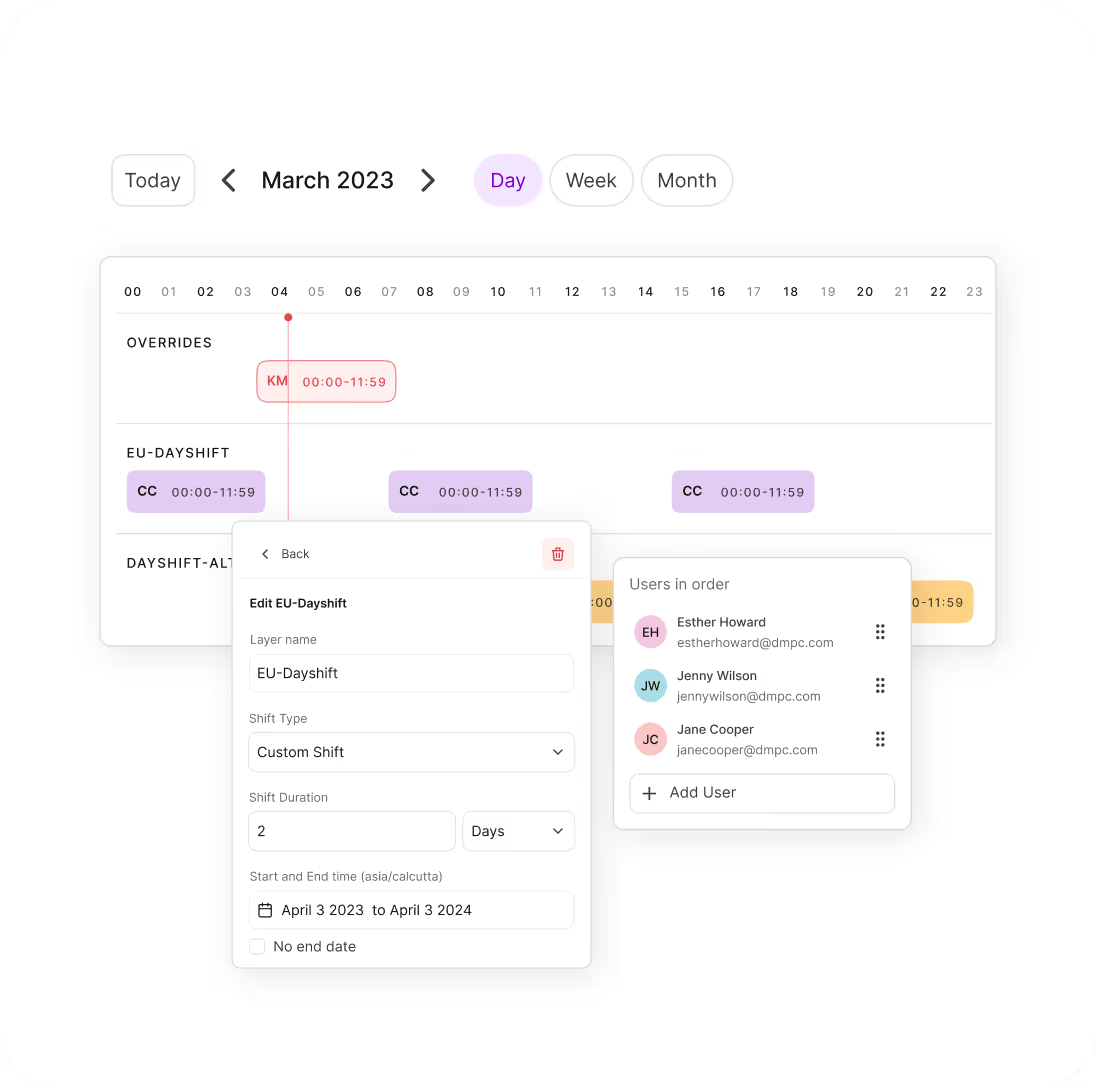
On-Call Management
Create fair, transparent on-call schedules that respect work-life balance. Intelligent escalation ensures critical issues reach the right expert without waking the entire team.
Incident Response Workflows
Coordinate cross-functional teams with built-in runbooks, incident roles, and real-time collaboration. Every responder knows exactly what to do and when.
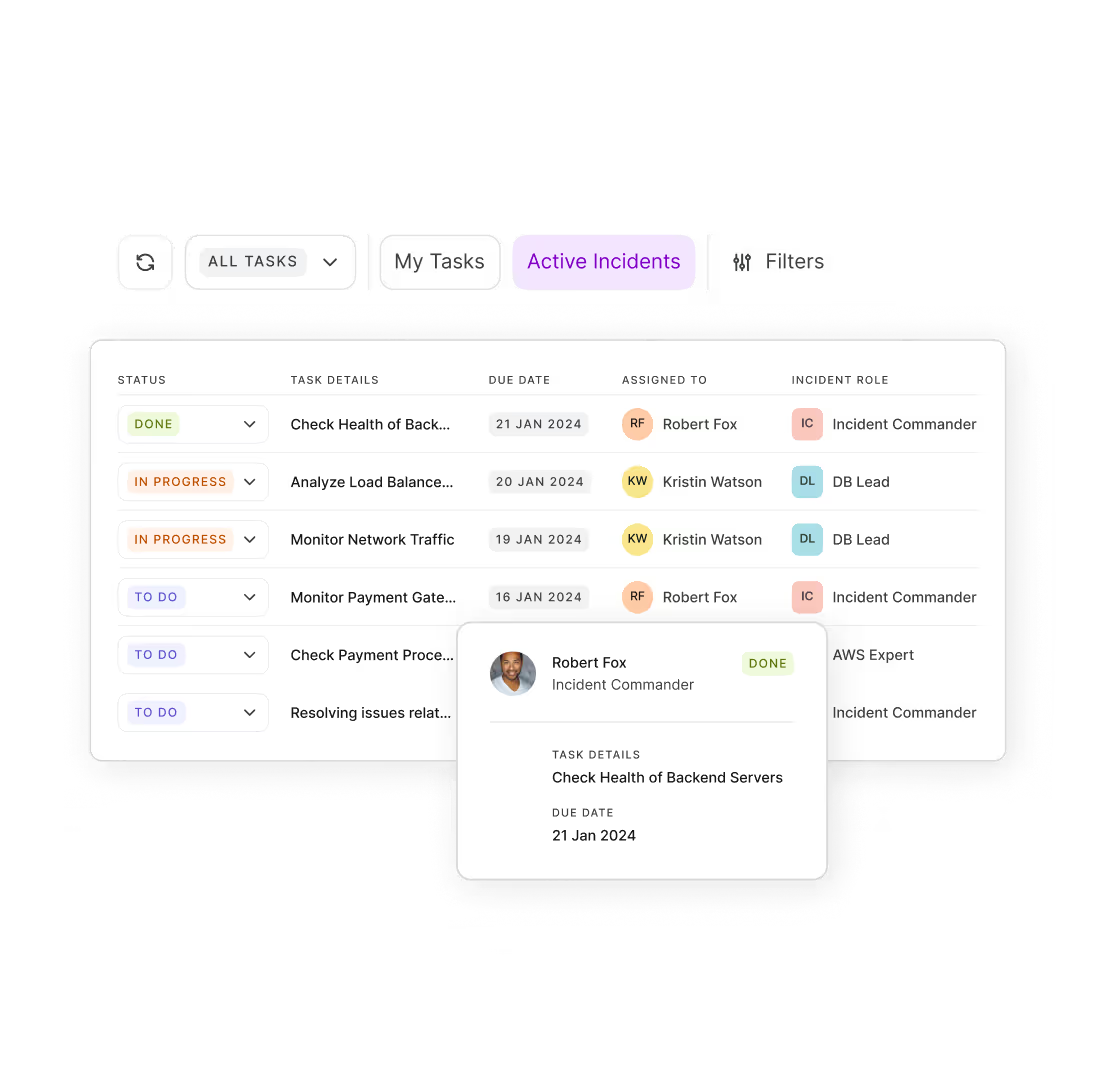
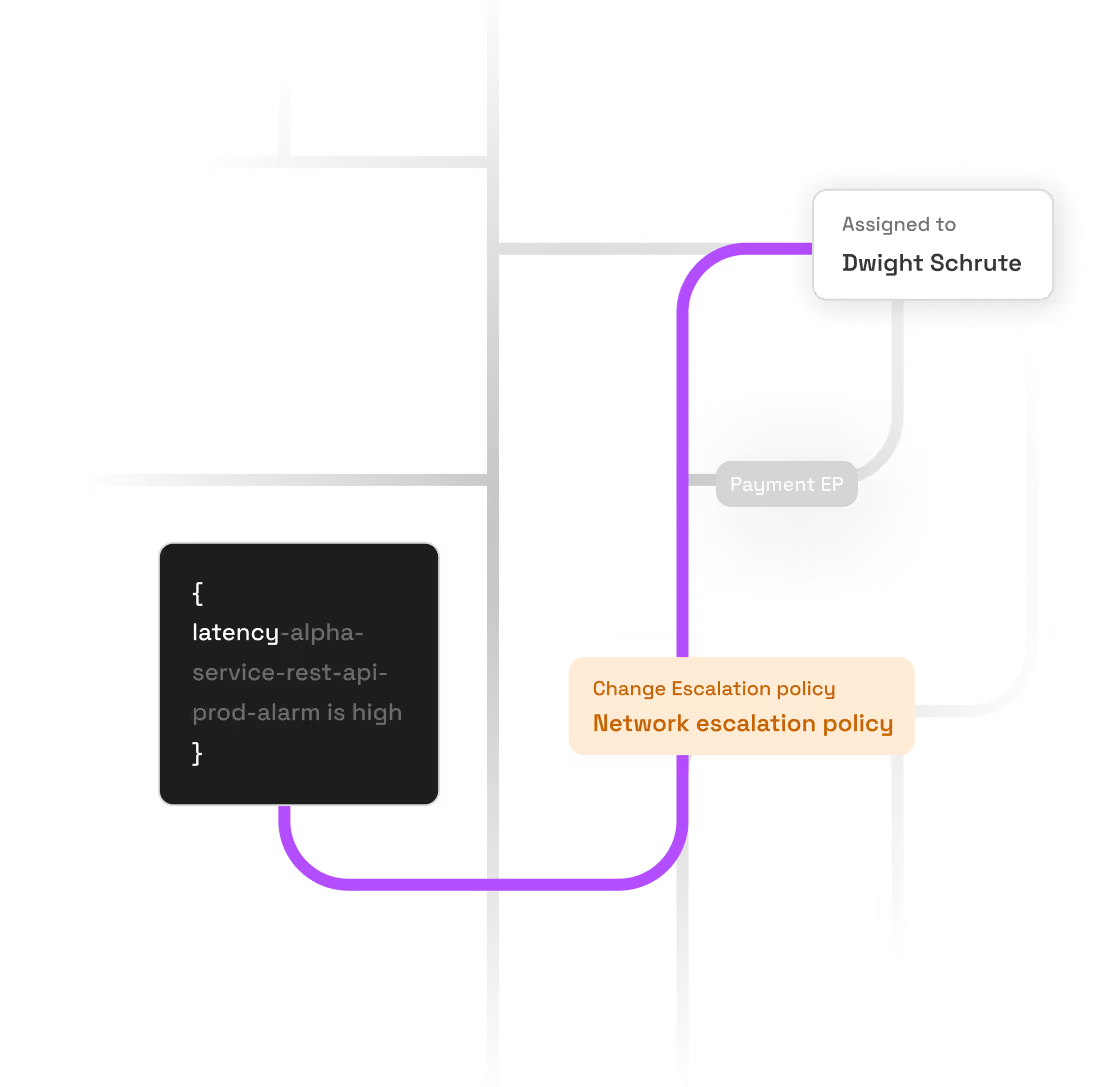
Custom Alert Routing
Route alerts based on time, service, severity, and team expertise. Ensure critical alerts always reach someone who can act, while filtering out the noise.
Post-Incident Management
Turn incidents into learning opportunities with automated timeline reconstruction, blameless postmortem templates, and action item tracking. Build a culture of continuous improvement.


Stakeholder Communication
Keep customers and internal stakeholders informed with automated status pages. Reduce "what's happening?" questions by 90% with proactive updates.
Workflow Automation
Create custom workflows and response plays for specific incidents. Automatically create and assign tasks, notify stakeholders, send incident communications and operationalise business-specific incident response procedures.
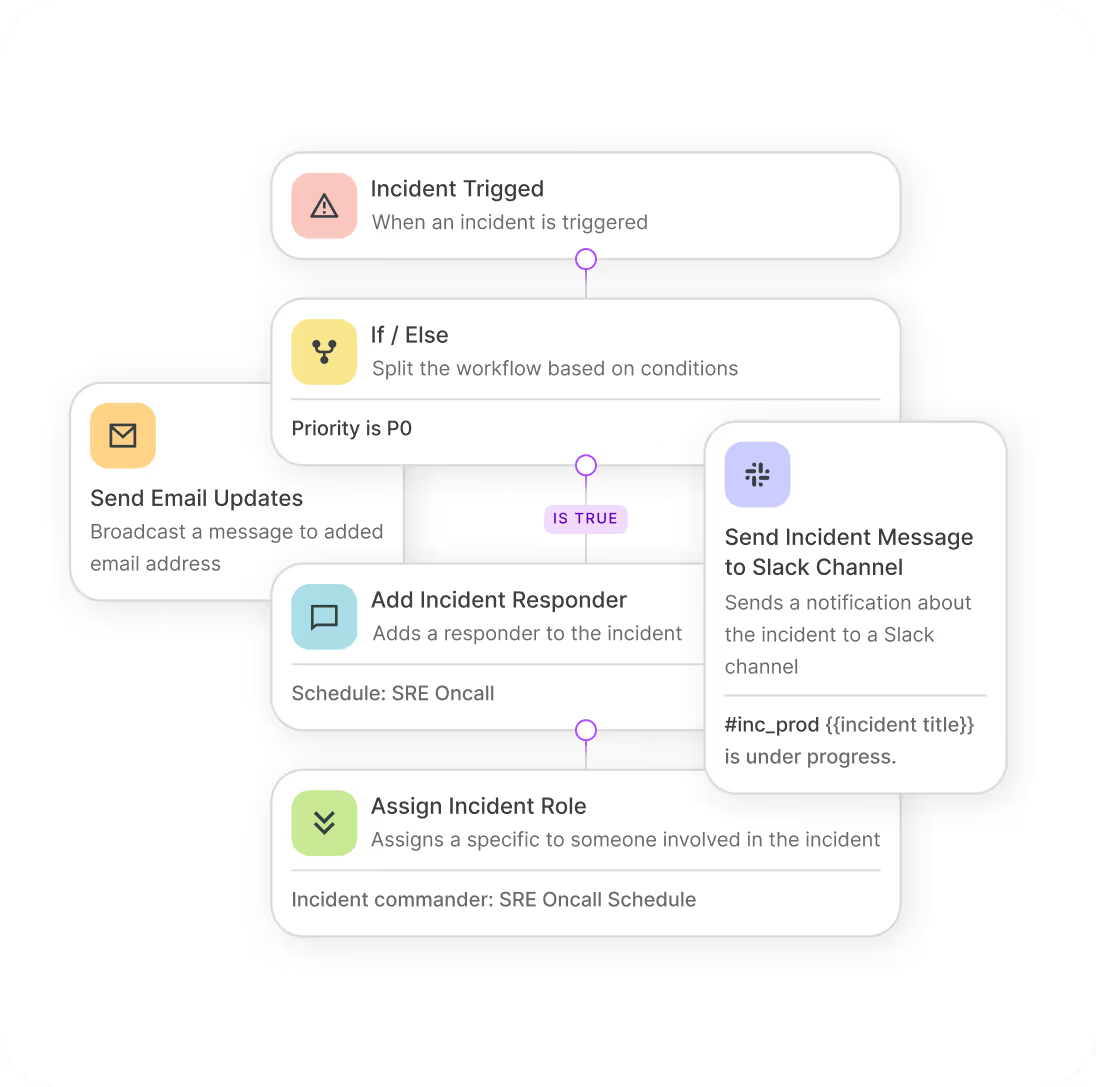
Quantifiable Impact
on Your Bottom Line
Reduction in MTTR
- From 4 hours to 1.3 hours average resolution time.
- Based on customer data across 50+ enterprise implementations.
Fewer Alert Escalations
- Intelligent routing and correlation mean only actionable alerts reach responders.
- Average reduction in alert volume: 15,000 to 3,000 per month.
Annual Savings
- Per 1,000-person engineering organization.
- Calculated from reduced downtime, fewer escalations, and improved productivity.
Reduction in On-Call Burnout
- Fair schedules and actionable alerts only.
- Measured by team satisfaction scores and voluntary on-call participation.
How Xurrent IMR's Incident Management Works
Intelligent Detection & Alerting
- AI-powered alert correlation reduces noise by 80%
- Multi-source monitoring integration
- Suppress duplicate and low-priority alerts automatically
Smart Routing & On-Call Management
- Route alerts to the right person based on expertise
- Fair on-call schedules that prevent burnout
- Escalation policies that actually work
Coordinated Incident Response
- War rooms with real-time collaboration
- Context-aware runbooks at your fingertips
- Track all actions in a unified timeline
Stakeholder Communication
- Automated status page updates
- Keep internal and external stakeholders informed
- Reduce "what's the status?" interruptions by 90%
Post-Incident Analysis & Learning
- Automated timeline reconstruction
- Blameless postmortem templates
- Turn every incident into an improvement opportunity
Schedule a Demo now!
Join 1,000+ engineering teams who have reduced MTTR, eliminated alert fatigue, and built more reliable systems with Xurrent IMR's modern incident management platform.
Trusted by Leading Engineering Teams






Complete Incident Management & Response Platform
AI-native incident management & response
Xurrent IMR centralizes alerts, orchestrates on-call, and automates workflows to cut MTTA and MTTR — all with the assistance of our advanced A.I

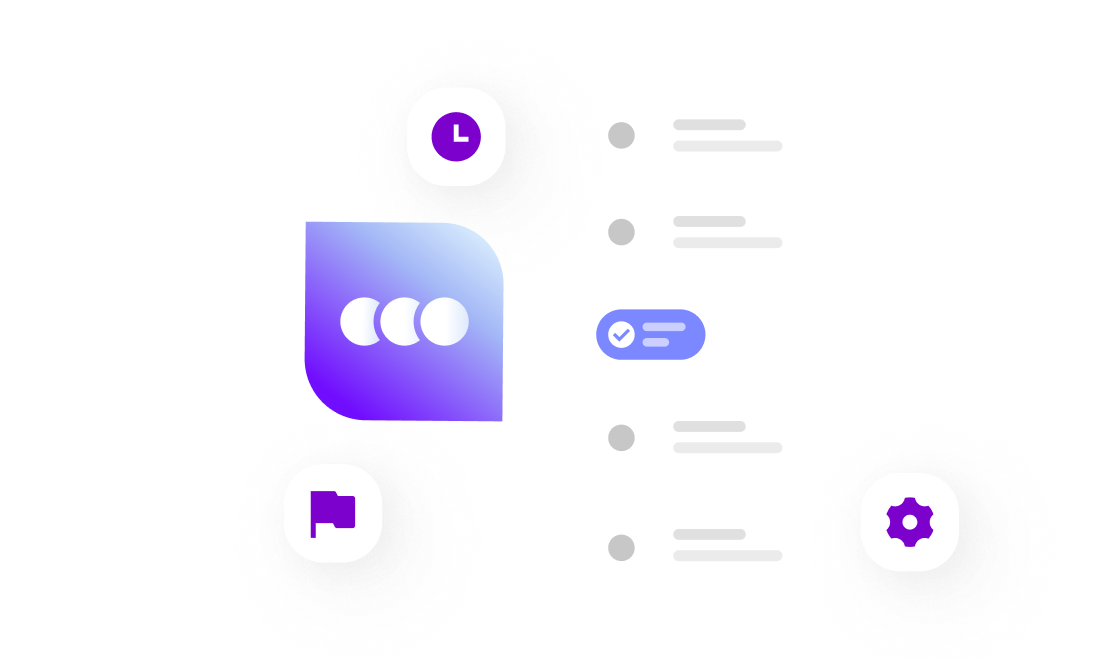
Keep stakeholders always informed
Status Pages deliver real-time status updates to customers and internal teams without added tickets.
Connect and automate at scale
Xurrent IMR integrates 150+ tools, synchronizing ITSM, ITOM, and incident data across the enterprise.
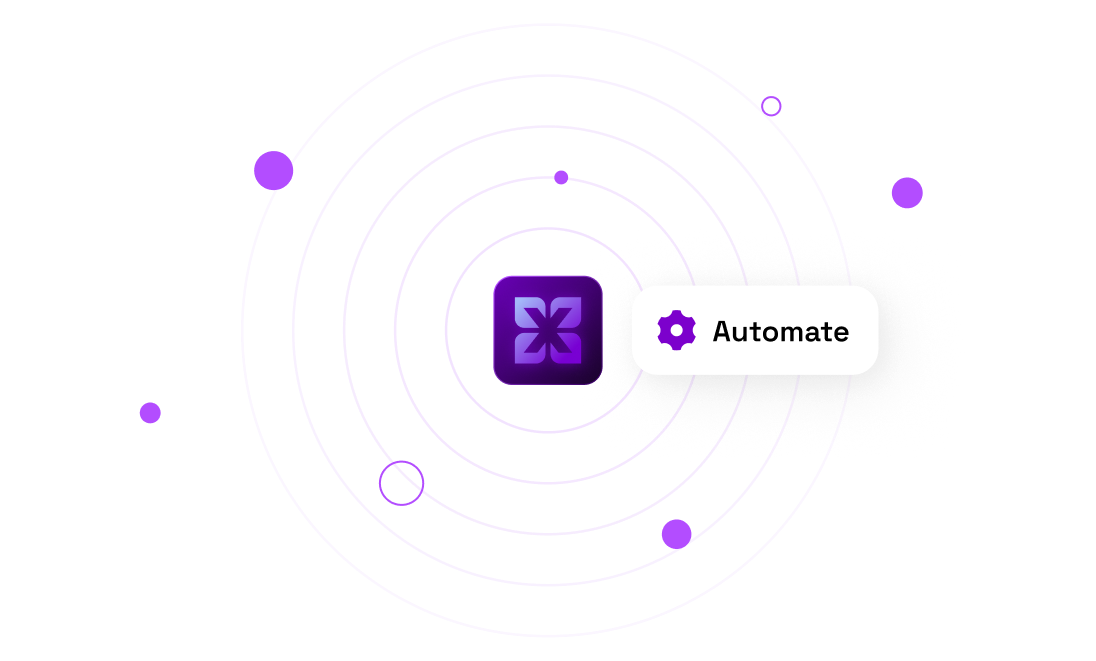
Seamlessly Integrate With Your Existing Stack


































Xurrent IMR sits at the center of your incident response workflow, connecting monitoring, communication, and ticketing tools you already use. Real-time bi-directional sync ensures everyone has the latest information, whether they're in Slack, Jira, or the Xurrent IMR dashboard. Set up in minutes with pre-built integrations and webhooks.
Experience Xurrent IMR's capabilities firsthand with our interactive product walkthrough. Navigate through key features and witness the impact of proactive incident resolution; all in a guided, hands-on environment.
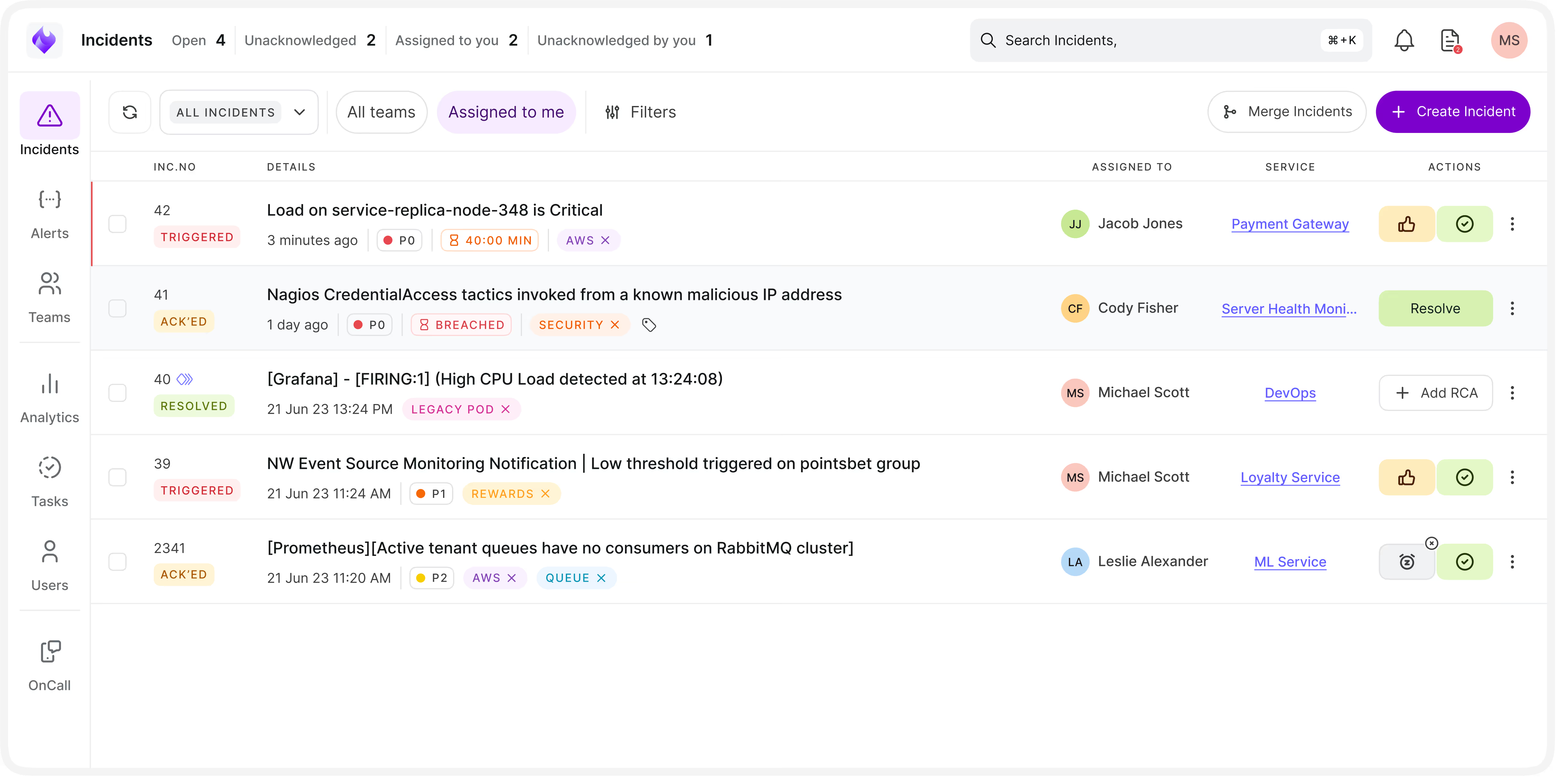
Built for SREs, DevOps, and IT Operations
- Alert fatigue from noisy monitoring
- Lack of context during incidents
- Time-consuming postmortem processes
- End alert fatigue with AI correlation and intelligent suppression
- Context-aware runbooks and incident timelines at your fingertips
- Automated postmortem generation saves 5+ hours per incident
- SLO tracking and error budget monitoring
- Blameless postmortem templates
- Integration with observability stack
- Difficulty tracking incidents to deployments
- Poor collaboration during incidents
- Manual runbook execution
- Automatically link incidents to recent deployments and changes
- Real-time collaboration in Slack, Teams, or dedicated war rooms
- Automated runbook execution reduces MTTR by 40%
- CI/CD pipeline integration
- Change tracking and impact analysis
- Infrastructure as Code compatibility
- High cost of tools and inefficiency
- Lack of visibility into incident trends
- Difficulty proving ROI to stakeholders
- Save $350K+ annually with consolidated incident management
- Executive dashboards with business impact metrics
- Track SLA compliance and team productivity
- ROI calculators and cost reporting
- Compliance and audit trails
- Team health and burnout monitoring
Flexible for Your Incident Management Approach
Traditional IT operations, service desk teams, regulated industries
- Structured incident lifecycle (Detection to Resolution to Closure)
- SLA compliance tracking and reporting
- CMDB integration ready
- Incident categorization and prioritization
- Audit trails for compliance
Engineering-driven orgs, cloud-native companies, high-scale systems
- Blameless postmortems with automated timelines
- Error budget tracking and SLO monitoring
- Automation-first approach to incident response
- “You build it, you run it" on-call philosophy
- Continuous improvement loops
Fast-moving product teams, continuous deployment environments
- GitOps integration for incident runbooks
- Infrastructure as Code compatibility
- CI/CD pipeline incident correlation
- Shift-left incident prevention
- Cross-functional collaboration tools
Start reducing
downtime today
Frequently Asked Questions
Incident management and response (IMR) is the end-to-end process of detecting, responding to, and resolving IT service disruptions while minimizing business impact. It includes alert management, on-call scheduling, coordinated incident response, stakeholder communication, and post-incident learning. Modern IMR platforms like Xurrent IMR unify these workflows in a single system.
Xurrent IMR reduces Mean Time to Resolve through four key mechanisms:
(1) AI-powered alert correlation eliminates noise
(2) intelligent routing gets alerts to the right expert immediately
(3) context-aware runbooks provide instant remediation steps
(4) real-time collaboration tools eliminate communication delays.
On average, customers see 60% MTTR reduction.
Xurrent IMR integrates with 150+ tools including Datadog, New Relic, Prometheus (monitoring), Slack, Teams (communication), Jira, ServiceNow (ticketing), and GitHub, GitLab (CI/CD). We also support webhook-based integrations for custom tools. View the complete integration catalog here.
ITIL (IT Infrastructure Library) provides a structured, process-driven approach to incident management, ideal for traditional IT operations and regulated industries. SRE (Site Reliability Engineering) emphasizes automation, engineering-driven solutions, and blameless culture. Xurrent IMR supports both methodologies—you can follow ITIL processes for compliance while adopting SRE practices like playbooks and blameless postmortems.
Initial setup only takes a few minutes to connect your first monitoring tool and configure basic on-call schedules. Full implementation with all integrations, runbooks, and team onboarding typically takes 1-2 weeks. We provide onboarding support and migration assistance for enterprise customers.
Yes, Xurrent IMR offers a 14-day free trial with full access to all features. No credit card required. You can invite your entire team and test all integrations before making a purchase decision. Start your trial here.
All Xurrent IMR plans include email and chat support. Enterprise customers receive dedicated Slack channels, priority support with instant response times, and assigned customer success managers. We also provide implementation assistance, training webinars, and extensive documentation.
Yes, Xurrent IMR is SOC 2 and ISO 27001-compliant deployments through our enterprise plan. We maintain comprehensive audit trails, data encryption in transit and at rest, and role-based access controls. View our security documentation here.
Yes, Xurrent IMR is a complete alternative to PagerDuty and Opsgenie, offering comparable alerting and on-call features plus advanced capabilities like AI-powered alert correlation and comprehensive post-incident management while saving up to 50% on cost. We provide migration assistance to help you switch with zero downtime.


